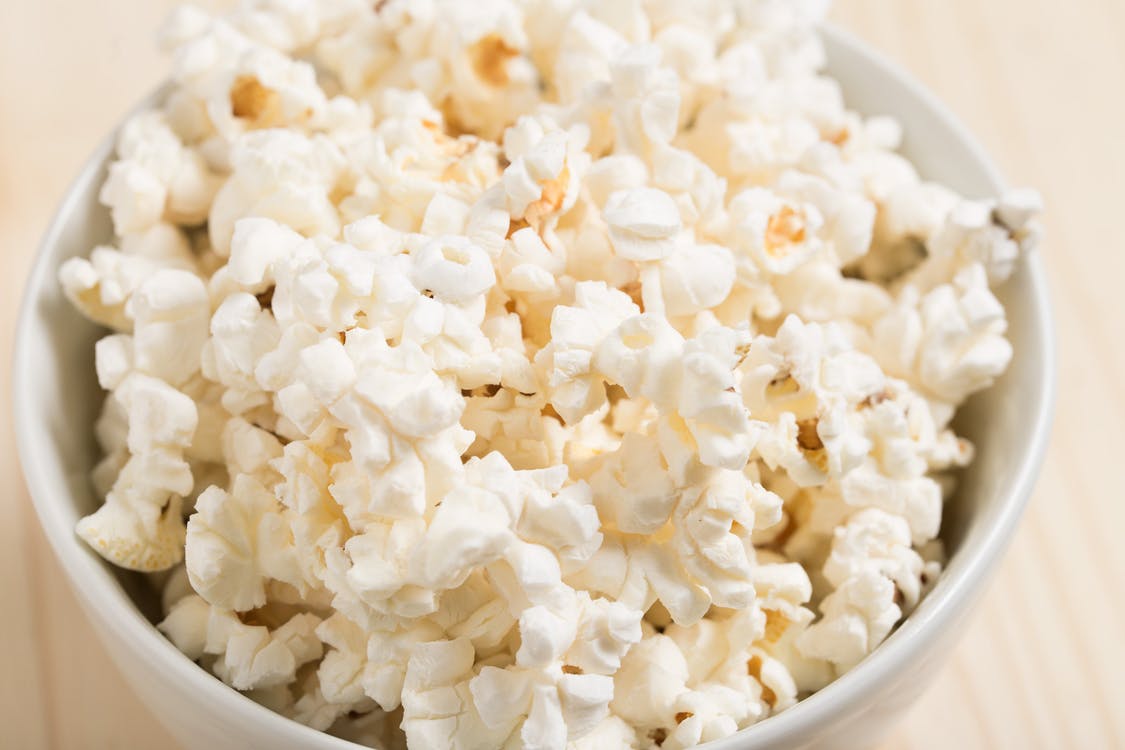If you’ve peeked into the vast world of supplements, you already know there’s a LOT out there. For example, searching for “anti-inflammatory supplements” brings up a long list of supplements, ingredients, nutrition companies, and more. Our secret for sifting through supplements? Look for high-quality ingredients prepared with maximum bioavailability in mind.
The truth is that the supplement industry is riddled with low-quality ingredients, mislabeled packaging, and poor formulations. Less expensive supplements might make your wallet feel better, but you could actually be throwing money away on ineffective supplements—and that’s the best-case scenario!
Worst-case scenario? Low-quality supplements may be so poorly formulated they actually cause you harm. That’s why bioavailability is so important. If your supplements aren’t formulated for bioavailability, your body won’t properly absorb the ingredients. Read on to learn more about bioavailability and why it’s essential for you and your supplements.
What Is Bioavailability?
In the most basic sense, bioavailability is the degree to which a substance can be absorbed and then removed from the body. High bioavailability means your body can easily absorb something, while low bioavailability means it’s more difficult to absorb.
Bioavailability can refer to supplements and medications, but also to simpler things like the foods we eat. Nutritionists have long been aware of the importance of bioavailability because it’s closely tied to what we eat and how that food interacts with our digestive systems.
For example, macronutrients like carbs and fats are very bioavailable. Our bodies already have systems in place for absorbing, using, storing, and excreting them. On the other hand, certain micronutrients (various vitamins, minerals, etc.) are harder for the body to absorb. Bioavailability is even more important when it comes to medications and supplements.
Why Is Bioavailability Important?
Bioavailability is important because it determines whether or not you’ll absorb nutrients, medications, and supplements. For those with specific medical needs, this can be a matter of life or death.
For example, drug bioavailability helps manufacturers determine the optimal dosage for different medications. If a medication is administered intravenously, its bioavailability is 100% because it goes directly into the bloodstream. However, medications that are given orally will have lower bioavailability since they pass through the digestive system.
Confused? Think of it this way—for life-threatening conditions that require medication, it’s essential for your body to properly absorb prescription drugs. In that instance, a doctor may recommend IV drugs or highly concentrated capsules. Conversely, a healthy individual with a small infected cut probably doesn’t need IV antibiotics. A topical antibiotic cream used for several days would most likely take care of it. In both instances, bioavailability is used to determine the appropriate dosage and method of administration.
So, what about supplements? You don’t have to be sick to benefit from supplements, so why is bioavailability important for them? Here’s a quick rundown:
Effectiveness
No matter what type of supplement you purchase, you’re obviously hoping to benefit from it in some way. However, if it isn’t designed for maximum absorption, you won’t get the full effect of those supplements.
Safety
To get around low bioavailability, some supplement companies will use large quantities of ingredients. Unfortunately, not only does that not guarantee the effectiveness of a supplement, but large amounts of certain ingredients can be harmful or even toxic.
Value
If you’re purchasing low-quality supplements that aren’t formulated with bioavailability in mind, you’re wasting money. You won’t experience the therapeutic effects, you may jeopardize your health, and you could end up spending money on a product that doesn’t deliver on its promises.
What Can Affect Bioavailability?
A shockingly large number of variables can influence bioavailability. Your unique physiology can even determine how well you absorb certain compounds. Those with conditions like ulcerative colitis often have a difficult time absorbing iron, while others with poor digestive health might not easily absorb a variety of nutrients.
However, if your doctor has ruled out conditions like these, you just have to worry about the bioavailability of the foods, medications, and supplements you put into your body.
The bioavailability of vitamins and minerals in certain foods can be affected by cooking preparations (raw, steamed, crushed, etc.). If you find that certain meals tend to cause gastrointestinal distress, you may consider preparing them differently before swapping them entirely. For example, sprouted grains are easier to digest and have more bioavailable nutrients compared to whole grains.
When it comes to supplements or medications, bioavailability comes down to three things: high-quality ingredients, extraction methods, and formulations.
So…why doesn’t everyone just create products with bioavailable ingredients?
Creating Supplements with Bioavailable Ingredients is Expensive
Ensuring a supplement is bioavailable is expensive. Supplements with bioavailable ingredients require a hefty amount of time, money, and dedicated researchers to create something safe, effective, and easily absorbable. And sometimes, even with all that, you still have to go back to the drawing board
For example, turmeric contains a powerful anti-inflammatory compound called curcumin. Unfortunately, studies show that curcumin isn’t water-soluble, and “its rapid biotransformation to inactive metabolites greatly limit its utility as a health-promoting agent and dietary supplement.” Luckily, a compound in black pepper called piperine helps increase curcumin’s bioavailability by stimulating the digestive tract so it gets absorbed before being metabolized and excreted.
Problem solved, right? Not necessarily. Piperine can activate the pain and heat sensors within the gastrointestinal tract and cause inflammation, pain, loose stool, and more. Admittedly, not everyone experiences that. However, it’s enough of a concern that alternatives should be considered.
Once ingredients have been carefully selected, they may need to undergo specialized extraction processes (we do that to acquire the Beta-Glucan 1,3/1,6-D for our Glucan85Plus beta-glucan supplement). Then the ingredients must be expertly formulated to ensure the optimal dose of each ingredient is used and that the body can properly absorb them. It’s a long, tedious process, but the results are worth it.
Bioavailability in Vitamins and Minerals
It should be pretty obvious by now that some vitamins and minerals are harder to absorb than others. While everyone’s nutritional needs are different, we thought sharing a few quick bioavailability hacks might help you get the most out of your foods!
- We tend to produce less gastric acid as we age which makes it harder to absorb micronutrients. Seeking out more bioavailable foods or supplements is particularly important at this stage.
- The bioavailability of food can be affected by growing conditions, cooking preparations, different food combinations, and whether or not the food is processed.
- Michigan State University says that foods with complex tissue structures (certain vegetables and meats) take longer to digest and, “are less bioavailable than nutrients in foods with less complex tissue structures. Foods of this type must be broken down or cooked in order for certain micronutrients to be available for absorption.”
- Source matters when it comes to bioavailability. For example, the iron from meat, fish, or poultry includes heme, while plant-based iron doesn’t. That’s why it’s recommended for those on a plant-based diet to consume more iron.
- Some foods contain anti-nutritive factors that actually impair the absorption of certain minerals. Some nuts, legumes, and grains contain phytic acid which makes it difficult to absorb zinc, iron, calcium, and iron.
- Some anti-nutritive factors can be reduced through processing or treatments. For example, soaking pinto beans before cooking not only helps remove flatulence-causing compounds, it also helps neutralize phytic acid.
- Consume foods that contain complementary vitamins and/or minerals. For example, combining foods with Vitamin C and Iron increases the bioavailability of both.
By no means is this a comprehensive list. However, it should give you a few ideas of how to start finding, preparing and eating more bioavailable foods. We do want to stress again, however, that everyone’s nutritional needs are different. That’s why we recommend speaking with your healthcare provider or nutritionist before making dietary changes.
Your Health Matters
We want to empower you with the nutrients your body needs to thrive. For us, that means developing a community committed to healthy living, creating high-quality supplements with bioavailable ingredients, and offering fast and courteous customer care.
Whether it’s green-lipped mussels from New Zealand or the optimal molecular chain of Beta Glucan from baker’s yeast, we carefully source all our ingredients. From research and sourcing to extraction and manufacturing, our supplements are designed with your health in min
That’s why we offer a 90-Day Money-Back Guarantee on both our Glucan85Plus and GLX3 supplements. We’ve done the research and we’re confident you’ll experience their full therapeutic benefits. Join the HakaLife Family and take charge of your health today.



















